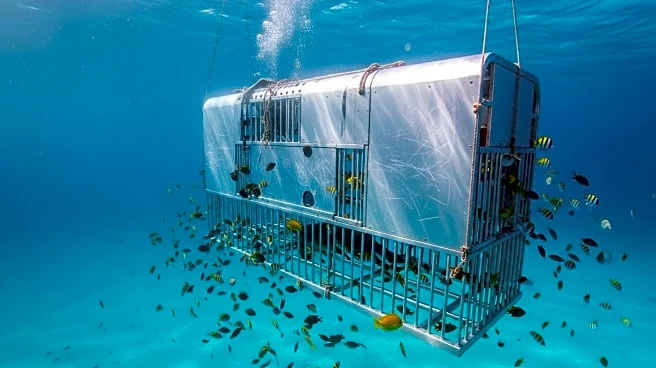What is the story about?
What's Happening?
Dr. Mauricio Hoyos, a researcher involved in a shark tagging expedition off the coast of Costa Rica, survived a shark bite to the head. The incident occurred during a research mission aimed at studying shark behavior and ecology. Despite the severity of the attack, Dr. Hoyos managed to survive and is recovering from the injuries. The event has drawn attention to the risks faced by researchers working in marine environments and the importance of safety measures during such expeditions.
Why It's Important?
This incident underscores the inherent risks associated with marine research and the need for stringent safety protocols to protect researchers. It highlights the unpredictable nature of working with wildlife and the potential dangers involved in studying large marine predators. The event may prompt research institutions to review and enhance safety measures for fieldwork, ensuring the well-being of scientists and researchers. Additionally, it brings attention to the critical role of research in understanding and conserving marine ecosystems.
Beyond the Headlines
The shark bite incident may lead to discussions about the ethical considerations of wildlife research and the balance between scientific inquiry and researcher safety. It could also influence public perceptions of sharks and marine research, emphasizing the need for public education on the ecological importance of sharks and the challenges faced by researchers. The event may inspire further research into shark behavior and interactions with humans, contributing to conservation efforts and the development of safer research practices.
















